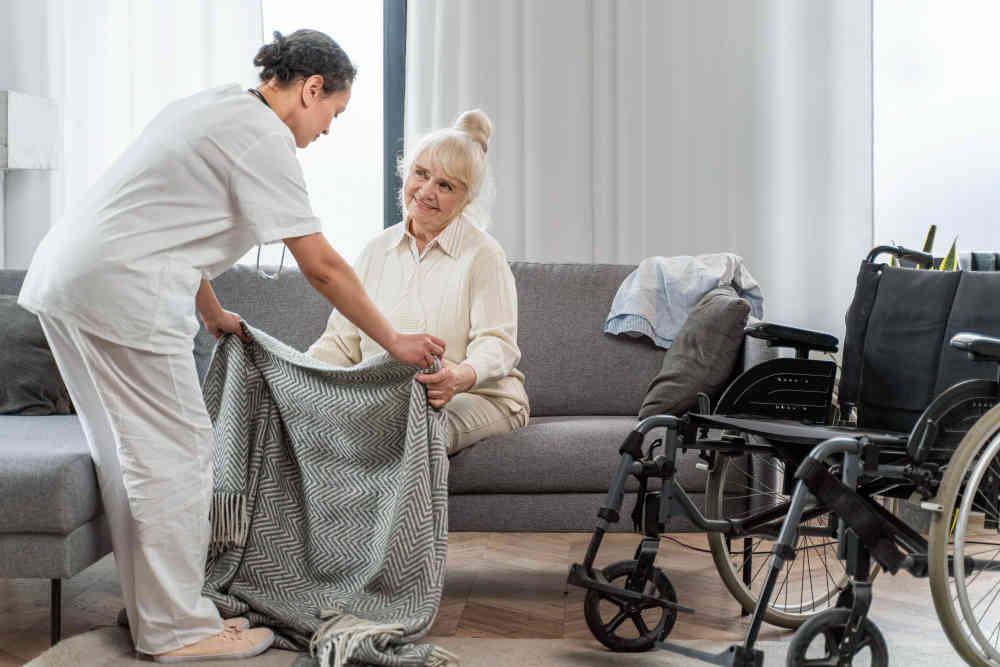Moving a loved one into assisted living is a significant transition that requires careful planning, emotional support, and understanding. Knowing what to expect can help alleviate concerns and ensure a smoother adjustment for both your loved one and your family. Here’s a guide to what you can anticipate during this important process:
Initial Assessments and Evaluations
Before your loved ones transition easily at Luther Manor or any assistive living, expect the facility to conduct initial assessments and evaluations. These assessments are designed to evaluate your loved one’s physical health, cognitive abilities, and care needs. They help determine the level of care and support required, ensuring that the facility can meet your loved one’s individual needs effectively. Be prepared to provide medical records, information about medications, and details about their daily routines and preferences during these assessments.
Choosing and Preparing the Living Space
Once a suitable assisted living facility is chosen, preparations for the living space will begin. Expect to coordinate with the facility’s staff to arrange the move-in date and logistics. You may need to discuss furniture arrangements, personal belongings, and any special requests or accommodations. The goal is to create a comfortable and familiar environment that feels like home for your loved one. Labeling belongings clearly and ensuring that essential items are easily accessible can facilitate a smoother transition.
Meeting with Care Staff and Developing Care Plans
Meeting with care staff is an essential part of the transition process. Expect to have discussions with caregivers, nurses, and other staff members who will be responsible for your loved one’s daily care. These meetings are opportunities to share information about your loved one’s preferences, routines, and medical history. Care plans will be developed based on their needs, outlining the specific services and support they will receive. Collaborating with care staff ensures that your loved one’s care plan is personalized and meets their individual requirements.
Adjusting to Daily Routines and Activities
Assisted living facilities offer a variety of daily routines and activities designed to promote social engagement, mental stimulation, and physical well-being. Expect your loved one to participate in scheduled activities such as exercise classes, arts and crafts sessions, social outings, and entertainment programs. Encouraging them to explore these opportunities can help them adjust to their new environment, make new friends, and maintain a sense of purpose and fulfillment.
Managing Medications and Healthcare Needs
Assisted living facilities provide support with managing medications and addressing healthcare needs. Expect trained staff to oversee medication administration, monitor health conditions, and coordinate with healthcare providers as needed. Regular health assessments and check-ups may be conducted to ensure your loved one’s well-being. Communicating openly with healthcare staff about any concerns or changes in health status can help ensure that your loved one receives appropriate care and attention.
Understanding Dining and Meal Options
Mealtime is an important aspect of daily life in assisted living. Expect the facility to provide nutritious meals and dining options tailored to your loved one’s dietary preferences and needs. Dining experiences may include communal meals in a dining room setting, room service options for those who prefer privacy, and special accommodations for dietary restrictions or preferences. Familiarizing yourself with the dining services and meal schedules can help your loved one feel comfortable and enjoy their dining experience.
Navigating Family Visits and Communication
Maintaining family connections is important for your loved one’s emotional well-being. Expect the assisted living facility to have policies and procedures in place for family visits and communication. Visiting hours, guest accommodations, and communication channels such as phone calls, video chats, and email may be available to facilitate regular contact with family members. Establishing a visiting schedule and staying in touch with your loved one regularly can provide comfort and support during their transition.
Conclusion
Moving your loved one into assisted living involves careful preparation, open communication, and understanding of what to expect throughout the process. By anticipating initial assessments, preparing the living space, meeting with care staff, adjusting to daily routines, understanding dining options, managing medications, navigating family visits, and embracing the supportive community, you can help ensure a positive transition and quality of life for your loved one.






